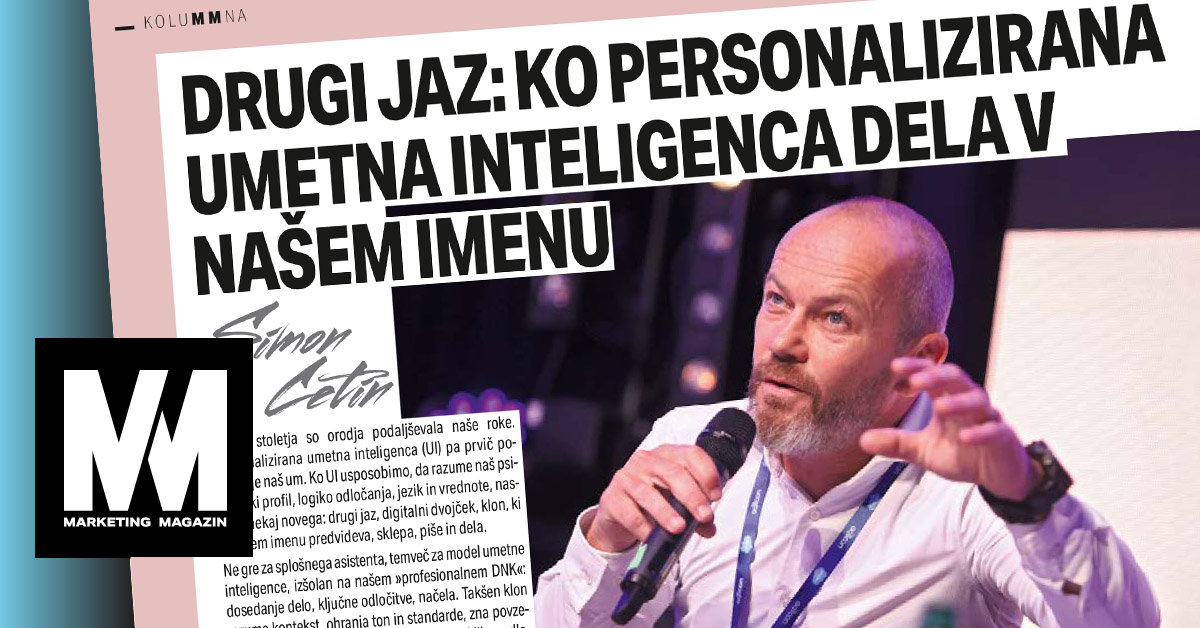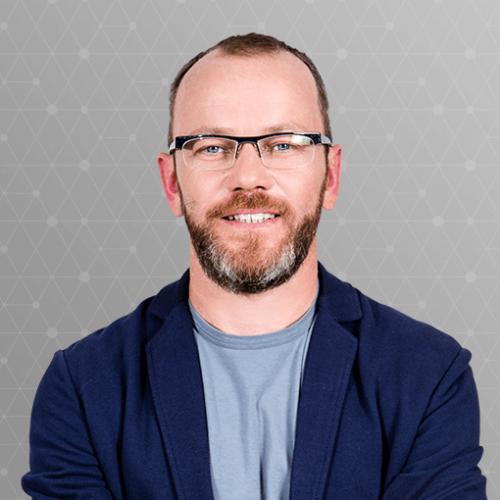In the September issue of Marketing magazin, Simon Cetin, founder and head of Retoba Laboratory as well as co-founder and partner at iPROM, reflected in his column on the role of personalized artificial intelligence, which he describes as our “other self.” This concept refers to a digital twin trained on an individual’s “professional DNA” – their decisions, values, language, and knowledge – capable of reasoning, writing, and performing tasks on their behalf.

At Retoba Laboratory, solutions are already being developed as part of the REWORK initiative, where personalized digital assistants take over repetitive tasks, prepare reports, analyse data, and even independently operate software tools through CUA (Computer Using Agent) technology. In practice, they act as operational colleagues, relieving managers of routine work and ingallow them to focus on creativity, vision, and relationships.
Cetin emphasizes that artificial intelligence does not replace humans but complements them. The greatest competitive advantage remains the individual, supported by their digital twin – a value multiplier that accelerates processes, preserves institutional memory, and ensures continuity of work even in the person’s absence.
“New employees gain mentorship on demand, and tasks that previously took hours or days can now be completed in minutes or even seconds. This is a revolution in execution speed, and we are witnessing it firsthand,” he writes.
At the same time, he highlights the importance of responsible use. Clear ownership, data security, and human oversight are essential, especially for high-risk tasks. Equally important is carefully designed prompt engineering, which determines how the digital twin interprets context, tone, and boundaries, including the ability to respond “I don’t know” or “I won’t.”
As he recalls, his first encounter with his digital twin was marked by a mix of pride and unease, similar to Sam Altman’s reaction when testing GPT-5. Yet the direction is clear: the other self will become a new standard for leadership and expertise.
“Work is being rewritten. An extraordinary future lies ahead. Let us not break the machines; let us entrust them with routine. Let us return time to people, to vision, and to relationships – the very reasons we are here,” Cetin concludes.
The full column “The Other Self: When Personalized Artificial Intelligence Works on Our Behalf” was originally published in the print edition of Marketing magazin (No. 531, p. 16). The online version is available at this link.
